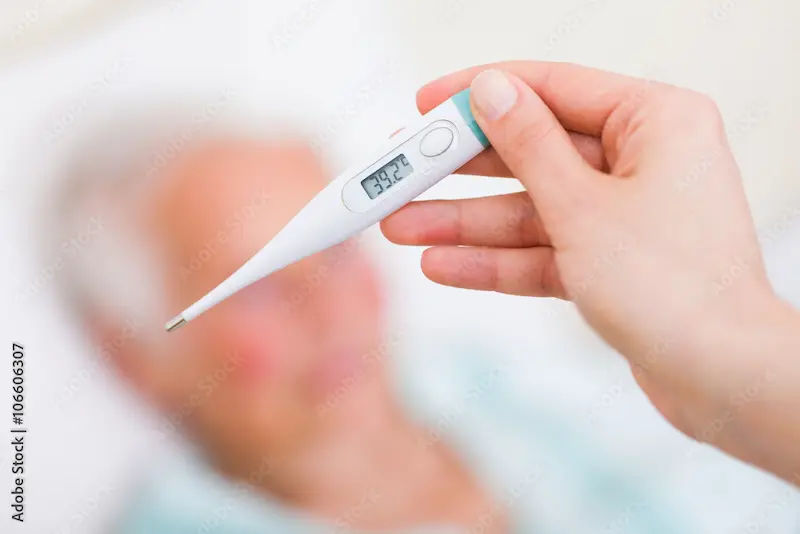Acute Febrile Illness Overview and Information
Get a clear overview of acute febrile illness (AFI), including common causes like infections, symptoms, and diagnostic approaches. Learn about the importance of early diagnosis and treatment for a full recovery.

Written by Dr. Rohinipriyanka Pondugula
Reviewed by Dr. Dhankecha Mayank Dineshbhai MBBS
Last updated on 13th Jan, 2026

Feeling feverish can be a common experience, but when it comes suddenly and is accompanied by other symptoms, it might be an acute febrile illness (AFI). If you or a loved one is experiencing this, don’t worry—this article will help you understand what AFI is, its causes, symptoms, and how to manage it effectively.
What is Acute Febrile Illness (AFI)?
Acute febrile illness refers to a sudden onset of fever (body temperature above 100.4°F or 38°C) that lasts for a short duration—usually less than two weeks. Fever is the body’s natural response to infections caused by bacteria, viruses, or parasites. While most fevers are mild and resolve on their own, some may indicate a more serious underlying condition that needs medical attention.
Common Symptoms of Acute Febrile Illness
Besides fever, AFI can come with other symptoms, such as:
Chills and sweating
Headache
Body aches and fatigue
Loss of appetite
Nausea or vomiting
Cough, sore throat, or runny nose (if caused by respiratory infections)
Diarrhea (if caused by gastrointestinal infections)
Skin rashes (in some cases)
If the fever is very high (above 103°F or 39.4°C) or lasts more than 34 days, it’s important to consult a doctor.
What Causes Acute Febrile Illness?
AFI can be triggered by various infections, including:
1. Viral Infections
Common cold & flu (Influenza) – Causes fever, cough, and body aches.
Dengue, Chikungunya, or Zika – Spread by mosquitoes, leading to high fever, joint pain, and rashes.
COVID19 – Can cause fever along with respiratory symptoms.
2. Bacterial Infections
Typhoid fever – Spread through contaminated food/water, causing prolonged fever and weakness.
Urinary Tract Infection (UTI) – Can lead to fever with burning urination.
Pneumonia – Causes fever with cough and breathing difficulty.
3. Parasitic Infections
Malaria – Spread by mosquito bites, leading to high fever with chills and sweating.
Other Causes
Heatstroke
Autoimmune disorders
Side effects of certain medications
How Does AFI Affect Your Health?
Most cases of AFI are mild and resolve with rest and hydration. However, if left untreated, some infections (like dengue, malaria, or typhoid) can lead to severe complications such as:
Dehydration
Organ damage (in extreme cases)
Low platelet count (in dengue)
Neurological issues (in rare cases)
When Should You See a Doctor?
Seek medical help if you experience:
Fever above 103°F (39.4°C)
Fever lasting more than 34 days
Difficulty breathing
Severe headache or confusion
Persistent vomiting or diarrhea
Skin rashes or bleeding spots
Stiff neck or sensitivity to light (possible meningitis)
If you're unsure, it’s always better to consult a doctor to rule out serious conditions.
Managing Acute Febrile Illness at Home
For mild fevers, you can follow these selfcare tips:
1. Stay Hydrated
Drink plenty of fluids (water, coconut water, ORS, herbal teas).
Avoid caffeine and alcohol, as they can cause dehydration.
2. Rest Well
Your body needs energy to fight infections, so take adequate rest.
3. Use FeverReducing Medicines
Paracetamol (Acetaminophen) is usually safe for reducing fever.
Avoid aspirin (especially in children) unless prescribed by a doctor.
4. Apply Cool Compresses
Use a damp cloth on your forehead, wrists, and feet to bring down the temperature.
5. Eat Light & Nutritious Food
Opt for soups, khichdi, fruits, and easily digestible foods.
Preventing Acute Febrile Illness
You can reduce the risk of infections by:
Washing hands frequently with soap and water.
Using mosquito repellents and nets to prevent dengue/malaria.
Drinking clean, boiled, or filtered water to avoid typhoid.
Getting vaccinated (flu, typhoid, or COVID19 vaccines if recommended).
Avoiding close contact with sick individuals.
When to Get Tested?
If your fever persists or worsens, your doctor may recommend tests such as:
Complete Blood Count (CBC) – Checks for infections.
Malaria Rapid Test – If mosquito-borne illness is suspected.
Dengue NS1 Antigen Test – For dengue fever.
Urine or Blood Culture – For bacterial infections like typhoid.
If you need to book a lab test or consult a doctor, you can easily schedule an appointment through Apollo 24|7 for quick and reliable healthcare support.
Final Thoughts
Acute febrile illness is common and often manageable at home. However, if symptoms persist or worsen, seeking medical advice is crucial. Stay hydrated, rest well, and take preventive measures to stay healthy.
If you have concerns about your fever or need expert guidance, don’t hesitate to reach out to a healthcare professional. Apollo 24|7 is here to help with online consultations and diagnostic tests for a faster recovery.
Stay safe and take care!


.webp)

